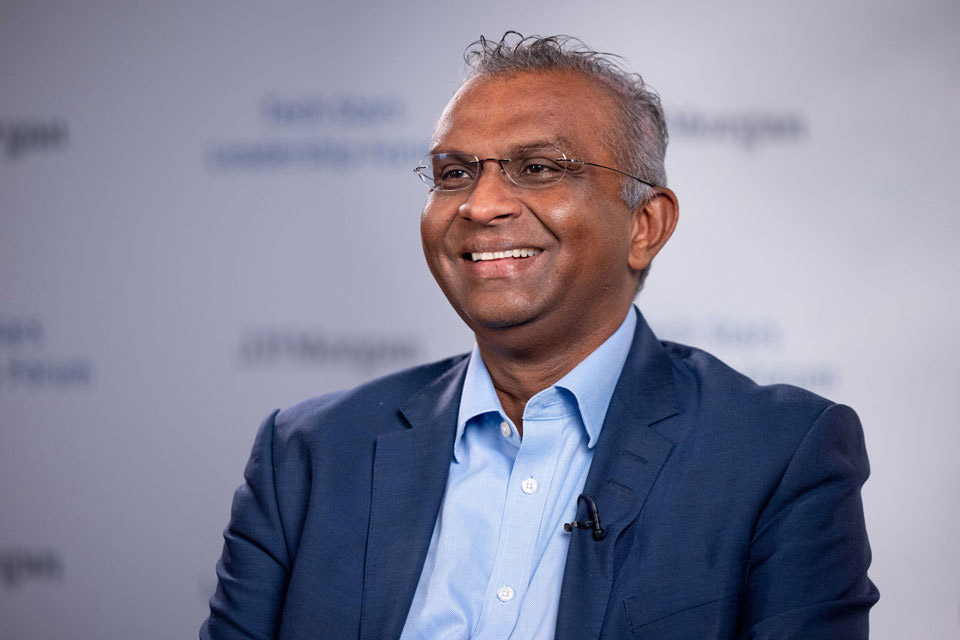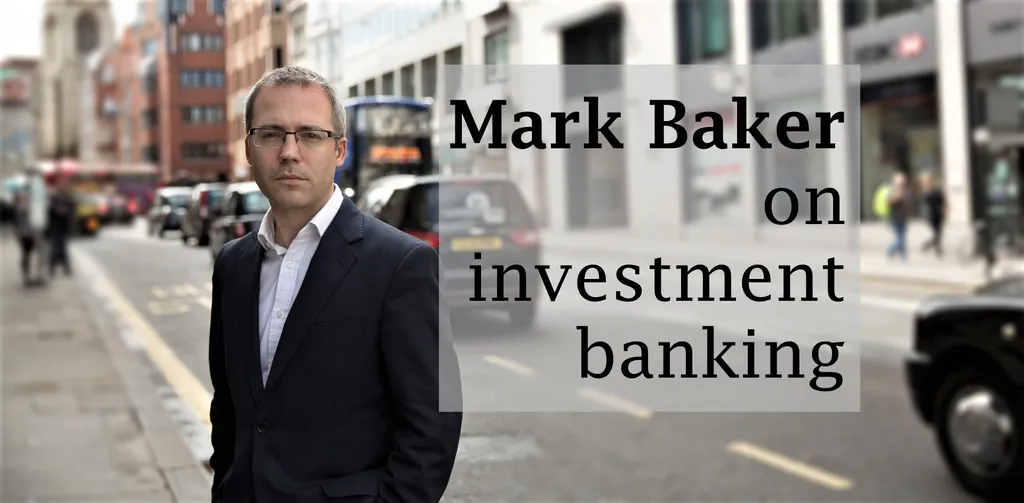Viswas Raghavan, who was announced today as the new head of banking at Citi, is a huge hire for the bank as it grapples with implementing chief executive Jane Fraser’s masterplan to turn around its fortunes and reputation among investors, a plan that Euromoney analysed in detail in late 2023.
The move puts an end to the long speculation over who would be appointed to replace interim head Peter Babej in the wake of the restructuring of the bank along five divisions last year. Given Raghavan’s seniority and profile in the industry, it is also tempting to see it as a substantial vote of confidence in Fraser’s overall strategy.
And it probably is that, but it is worth noting that there will be a series of other reasons why the move makes sense for Raghavan personally.
First, and obviously, it will have been highly lucrative. Second, he gets a direct reporting line to his employer’s chief executive.
Given his nature, this will matter more to him than it would to some, even some industry veterans. The latest (very recent) rearranging of the deckchairs at JPMorgan, which accorded him the title of global head of investment banking, still placed him further from the very top of the firm than he will be at Citi.
Third, and related to the second, the move firmly positions him as among the contenders for a bigger job at Citi in time. Whether he might ever want such a thing is a different matter, but he will now at least be sitting in New York should it come about.
Career trajectory
Raghavan’s new role reflects quite the progression from where he was 20 years earlier. Back in the early 2000s, when he was running JPMorgan’s European convertible bond franchise, he proved to be an astute marketer of that product and of himself – a characteristic not lost on some of his rivals in the market at the time.

Since then, of course, his career trajectory has eclipsed many of those rivals. Staying at the most profitable bank in the industry for so long would not have been a tough choice, but being able to be repeatedly promoted to senior roles within JPMorgan is certainly something that only a select few achieve.
It has always been remarkable how many bankers from an equity capital markets background eventually end up in senior divisional or group-wide roles.
The theory has often been that a background in ECM, working with a roster of highly varied clients who are not repeat issuers in the manner of a supranational debt client, fosters more of a strategic approach to business.
Raghavan’s path – culminating in this latest move – may be the perfect illustration of this. He has proved himself highly adept at transitioning from capital markets specialist into broader operational management roles, and has earned his chops doing that in the fragmented region of Europe while helping to manage JPMorgan’s response to Brexit.
Splashing the cash
But what about for Citi? Does his arrival really say something about the bank’s appetite for its investment bank, as some observers might be tempted to conclude?
This remains to be seen. Clearly it tells us that Fraser is prepared to splash the cash for a big name. That in itself tells us something of how she wants the franchise to be seen. Whether it says something about how that franchise will necessarily develop is less clear.
After all, Raghavan will be coming into a job that is much, much broader than just the investment bank, so expectations of what he will do need to reflect that.
The new ‘banking’ unit that Raghavan will be running was created in last autumn’s reorganization of Citi’s business lines, which saw the dismantling of the old sprawling Institutional Clients Group that Paco Ybarra used to run and which encompassed transaction and trade services, global markets and a banking, capital markets and advisory group.
Raghavan will ruffle some feathers, but all the evidence is that Fraser wants feathers ruffled
With services and markets now forming two of the five divisions of Citi that report directly to Fraser, the new-look banking group that Raghavan will inherit takes in the investment banking business that is now run by capital markets veteran Tyler Dickson, the commercial banking business run by Tasnim Ghiawadwala and corporate banking, run by Jason Rekate.
One area where Raghavan’s role will be critical is ensuring the connectivity between those three businesses. Citi, in common with its universal banking peers, likes to talk these days about the potential to be unearthed in its commercial banking relationships, not least for cross-selling of investment banking and other services.
A big part of Raghavan’s mandate, one assumes, will be making sure that happens and that corporate or commercial banking relationships that could be profitably tapped by the investment bank do not fall through the cracks.
That kind of focus was also behind the creation of the centralized client organisation that is run by David Livingstone, a unit that is tasked with ensuring effective delivery of the entire firm to clients.
Another obvious element that Raghavan brings – and which Fraser has made clear is a priority of her overall restructuring of Citi – is the ability to bring his experience as JPMorgan’s European chief executive to bear on Citi.
Impact gauge
What is harder to gauge right now is the extent to which Raghavan himself will have the scope and bandwidth to make meaningful improvements in the performance of Citi’s investment bank itself, which attracts criticism for being subscale in some products and, in particular, outside its home market.
Given that Citi is likely to have greater success in leveraging connectivity between businesses, this may not matter to Fraser. In hiring Raghavan, she gets to issue an announcement that mentions investment banking a lot.
Raghavan’s latest JPMorgan title, which he had only held for a matter of weeks, was indeed head of global investment banking, and he had previously been the co-head of global investment and corporate banking since 2020, and before that he had been head of EMEA investment and corporate banking and treasury services.
And so, for Fraser, an appointment like Raghavan’s has symbolic importance that goes well beyond the practicalities of having someone senior to run each of her five business units. Hiring someone like Raghavan shows that she can hire someone like Raghavan, and that her doubters had better take notice.
After all, the second sentence of her memo to staff today hailed the move as “another example of our ability to attract the best talent to our firm”. You don’t spend what she will have spent simply to make a point, but it does no harm to be able to make a point too.
Within Citi, there will doubtless be a mixture of pleasant surprise and apprehension: Raghavan will ruffle some feathers, but all the evidence is that Fraser wants feathers ruffled.
Investors should cheer that.




